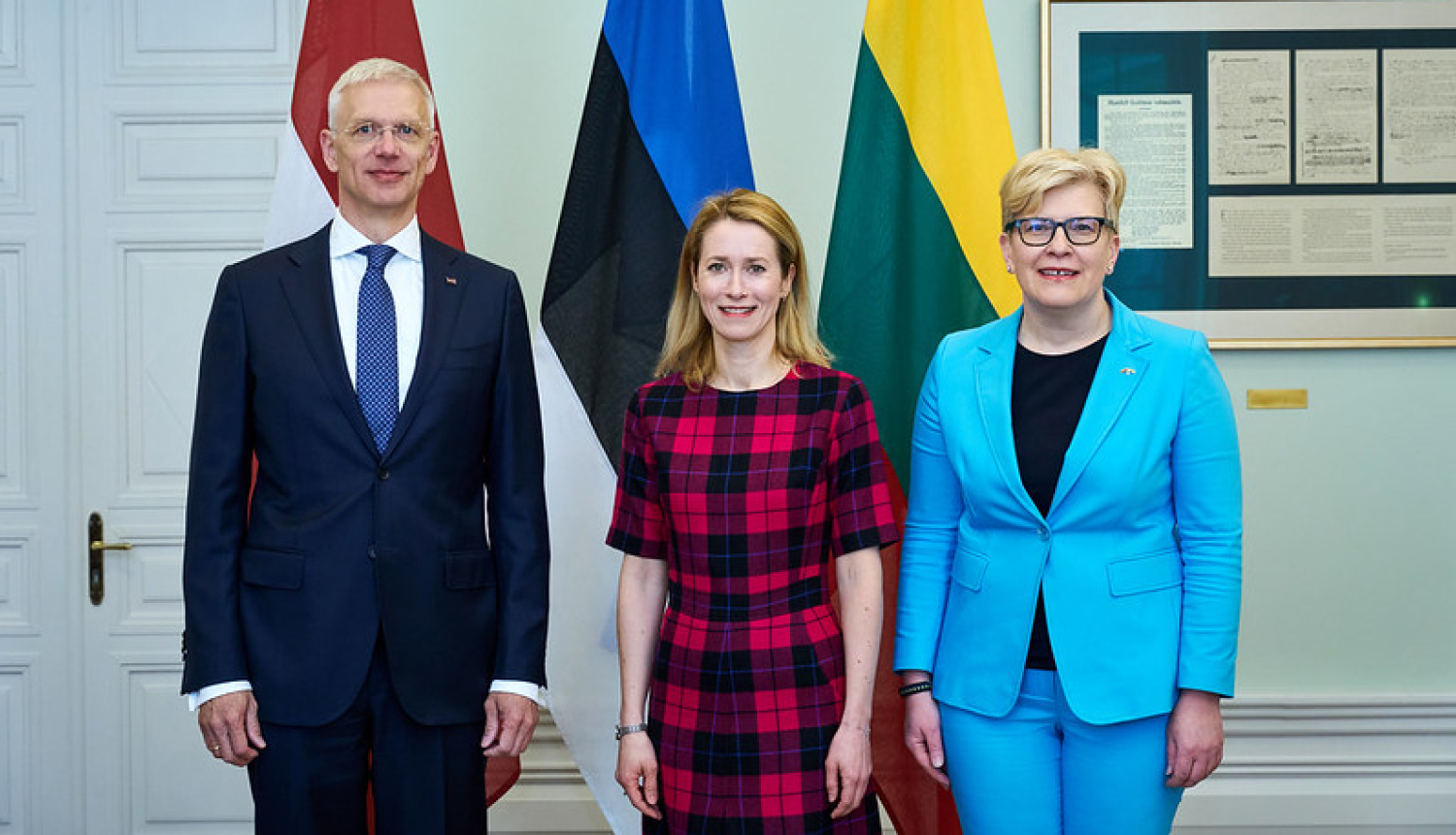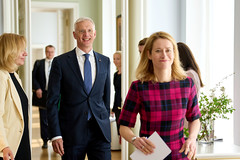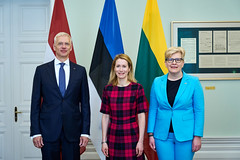Today, we reiterate the unity and close cooperation between the Baltic States. We need each other politically, economically and militarily, and we are determined to strengthen the energy independence of our countries, the security of the region and further strongly support Ukraine," the Prime Minister said after the meeting.
According to K. Kariņš, the meeting with Estonian Prime Minister Kaja Kallas and Lithuanian Prime Minister Ingrida Šimonytė focused on energy security of the region. The Prime Minister stressed that the future of the Baltic States’ energy independence lies in the development of renewable energy capacity, especially in offshore wind energy projects, which require interconnections among the Baltic States as well as with the Scandinavian and Central European countries.
The Prime Ministers also addressed the desynchronization of the Baltic States’ electricity grids from the Russian and Belarusian electricity grids. The Baltic States have a common goal to work on its acceleration to implement it as soon as possible. A study on the technical aspects of desynchronization acceleration is expected in the near future, which will underpin further joint steps by the Baltic States on this issue.
The Heads of Government of the Baltic States also discussed the necessary support for Ukraine. The Prime Minister emphasized that the Baltic States are determined to continue their unwavering support to Ukraine in its fight against Russia's aggression until the complete victory of the Ukrainian people. K. Kariņš highlighted the need to move forward with Ukraine’s integration into the European Union. Ukraine is implementing complex reforms even in spite of the war. We expect the European Union to open accession negotiations with Ukraine by the end of this year. We must also send a clear signal to Ukraine that it will be able to join NATO after the end of the war. "Europe will enjoy peace and security only when Ukraine becomes a full member of the EU and NATO and when all so-called grey areas, which Russia has traditionally regarded as its sphere of influence, will be eliminated," said K.Kariņš.
The Baltic Prime Ministers also focused on preparations for the NATO Summit in Vilnius to be held on 11-12 July. The Prime Minister pointed to the need to implement the decisions of the NATO Madrid Summit last year on strengthening the Alliance’s Eastern flank. The progress in scaling up the NATO enhanced Forward Presence Battle Group in Latvia into a combat-ready brigade remains Latvia's priority. "Latvia is also increasing its national defence capabilities. We have increased our defence spending to 2.25 % of GDP and progressing towards an increase of 3 % in the coming years. This year we are introducing the State Defence Service, as well as are planning to purchase new weapon systems."
The Minister for Climate and Energy Raimonds Čudars also attended the meeting of the Baltic Council of Ministers and with the Minister of Climate of Estonia Kristen Michal signed the memorandum between Latvia and Estonia on cooperation on natural gas supplies in crisis situations.





